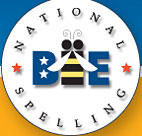Sorry for the long wait, but I will start posting the Italian rules! If you play an instrument and you receive music term at the National Spelling Bee, it is most likely Italian. I recently played a song called Romanze by Schumann, and I have to play it semplice, affettuoso. If you receive a food word, it may be Italian. Food from Italy is very delicious. In my food and nutrition class, I did a report on Italian food. Here are some: gnocchi, prosciutto, Bolognese, and perciatelli. (See more explanations at the bottom)
In choir, there was a section in one of our songs that was in Italian, but some of us thought it was Latin. Latin has a big impact on Italian.
Now for some rules:
The long "a" sound at the end of the word is spelled with an e. (examples: tagliatelle, pappardelle, scintillante)
The long "e" sound at the end of the word can be spelled with an i or e. (examples: fettuccelle, brindisi, ziti, cannelloni, panettone, lazzarone)
The long "e" + long "o" sound at the end of the word. (examples: atrio, nuncio, capriccio)
Hints for Italian:
Whenever you go to a restaurant, read the menus because there are a lot of words to learn. Before the 2010 National Spelling Bee, I went to Olive Garden and learned several words. Gnocchi was one of the words I encountered. I tried it and it was pretty good. A few weeks later, the word was used at the National Spelling Bee.
If you play an instrument, pay attention to the words. Some are giocoso, siciliano, semplice, sonata, concerto, fughetta, acciaccatura and arioso. The winning word in 2005 is an Italian word. What word is it? Appoggiatura. This word is also in Suzuki Flute School Volume 5 and 6. Paying attention to words pays off, too!

No comments:
Post a Comment